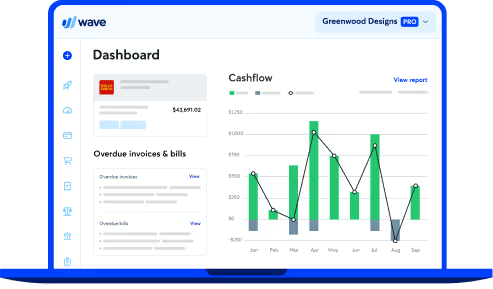
Five ways to finance your small business
In this guest blog post, Marcus Ferrari from Cashflow Direct discusses options for financing your small business.
Cash flow is one of the main concerns of most small businesses and is often cited as a top reason for business success or failure. Here are five forms of financing for different types of small businesses to make sure you always have the cash you need:
1. Bank loan
The most common form of financing is a commercial bank loan. However, it can be difficult for a small business to qualify for this form of financing. Banks prefer to lend to companies with experienced owners that can show a history of profit and stability. Even companies that are eligible for bank financing sometimes find the terms stifling.
2. Asset- based lending
This is similar to a bank line of credit, but with a few key differences. The main one is that the amount of money you are able to borrow is primarily based on a percentage of the total assets under consideration. Typically, assets considered for this type of loan would be accounts receivables with some combination of machinery, inventory and equipment.
In most cases the lender can provide up to 85% of the accounts receivables and up to 60% of the inventory. Asset-based lending is often used when a bank line of credit is too inflexible, slow or unattainable.
3. Factoring
This form of financing fills a gap in the credit market because it creates an immediate influx of cash based solely on invoices. It tends to have more flexibility and it’s easier to qualify for than asset-based lending or bank financing.
A factor purchases your accounts receivables and advances 70% to 90% of the total. Often, factoring is used by service-based companies that don’t have collateral: startups, companies with seasonal work, and companies that are growing quickly.
In other words, factoring is a feasible option for financing your small business. It’s also useful for companies that have hit hard times and need cash flow to turn around their business.
4. Merchant Cash Advances
This form of financing is a solution for companies that are having difficulty securing traditional loans or need funding for a special project. As opposed to factors (that purchase current invoices), cash advance providers purchase future income.
These providers offer businesses a lump sum of capital. Unlike a loan, you pay a set percentage of your daily credit card sales until the cash advance company recovers their advance and premium.
Although this is a more costly form of finance, it is a useful solution for companies such as restaurants with strong credit card sales that need capital to grow their business or purchase new equipment.
5. Purchase Order Finance
This form of finance generates working capital to pay for finished goods or components based on your customer’s purchase order. A Purchase Order Finance company pays your supplier to produce and ship goods so you can fulfill a customer’s order.
Once you fulfill the order, you invoice your customer and send a copy to the P.O. finance company. They collect payment for that invoice and return the payment to you, less a fee. This is a solution for companies that need increased cash flow to take on new business or expand their operations.
These are just a few of the types of financing available to small businesses. There are many options to explore that can free up cash and help grow your business. Whichever form of finance you pursue, you’ll find that the revenue you generate from expanding your operations can far outweigh the cost of alternative finance solutions.
As the Managing Director of Cashflow Direct, creating cash flow for small and medium-sized businesses is Marcus’s top priority. Marcus is known for his ability to generate fast and flexible funding solutions for companies from start-ups to established businesses.
(and create unique links with checkouts)
*While subscribed to Wave’s Pro Plan, get 2.9% + $0 (Visa, Mastercard, Discover) and 3.4% + $0 (Amex) per transaction for the first 10 transactions of each month of your subscription, then 2.9% + $0.60 (Visa, Mastercard, Discover) and 3.4% + $0.60 (Amex) per transaction. Discover processing is only available to US customers. See full terms and conditions for the US and Canada. See Wave’s Terms of Service for more information.
The information and tips shared on this blog are meant to be used as learning and personal development tools as you launch, run and grow your business. While a good place to start, these articles should not take the place of personalized advice from professionals. As our lawyers would say: “All content on Wave’s blog is intended for informational purposes only. It should not be considered legal or financial advice.” Additionally, Wave is the legal copyright holder of all materials on the blog, and others cannot re-use or publish it without our written consent.


























